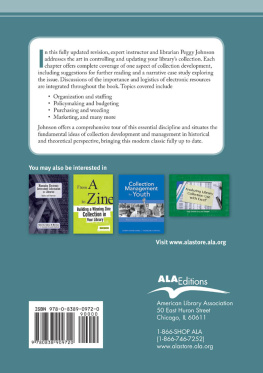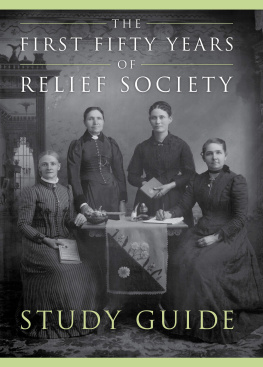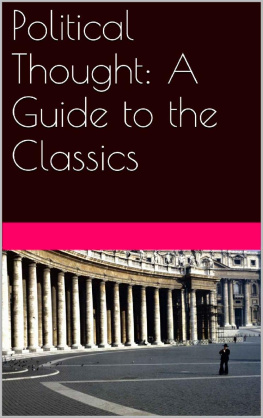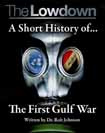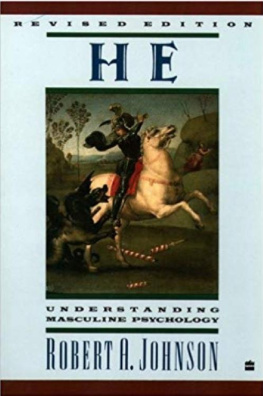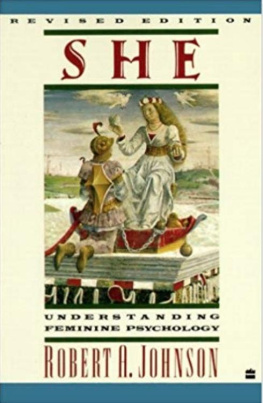Johnson - Collingwoods The idea of history: a readers guide
Here you can read online Johnson - Collingwoods The idea of history: a readers guide full text of the book (entire story) in english for free. Download pdf and epub, get meaning, cover and reviews about this ebook. City: London, year: 2012, publisher: Bloomsbury Publishing Plc;Continuum, genre: History. Description of the work, (preface) as well as reviews are available. Best literature library LitArk.com created for fans of good reading and offers a wide selection of genres:
Romance novel
Science fiction
Adventure
Detective
Science
History
Home and family
Prose
Art
Politics
Computer
Non-fiction
Religion
Business
Children
Humor
Choose a favorite category and find really read worthwhile books. Enjoy immersion in the world of imagination, feel the emotions of the characters or learn something new for yourself, make an fascinating discovery.
Collingwoods The idea of history: a readers guide: summary, description and annotation
We offer to read an annotation, description, summary or preface (depends on what the author of the book "Collingwoods The idea of history: a readers guide" wrote himself). If you haven't found the necessary information about the book — write in the comments, we will try to find it.
Collingwoods The idea of history: a readers guide — read online for free the complete book (whole text) full work
Below is the text of the book, divided by pages. System saving the place of the last page read, allows you to conveniently read the book "Collingwoods The idea of history: a readers guide" online for free, without having to search again every time where you left off. Put a bookmark, and you can go to the page where you finished reading at any time.
Font size:
Interval:
Bookmark:
BLOOMSBURY READERS GUIDES
Bloomsbury Readers Guides are clear, concise and accessible introductions to key texts. Each book explores the themes, context, criticism and influence of key works, providing a practical introduction to close reading, guiding students towards a thorough understanding of the text. They provide an essential, up-to-date resource, ideal for undergraduate students.
READERS GUIDES
Collingwoods
The Idea of
History
A Readers Guide
PETER JOHNSON

Bloomsbury Academic
An imprint of Bloomsbury Publishing Plc
50 Bedford Square | 175 Fifth Avenue |
London | New York |
WC1B 3DP | NY 10010 |
UK | USA |
www.bloomsbury.com
First published 2013
Peter Johnson, 2013
All rights reserved. No part of this publication may be reproduced or transmitted in any form or by any means, electronic or mechanical, including photocopying, recording, or any information storage or retrieval system, without prior permission in writing from the publishers.
Peter Johnson has asserted his right under the Copyright, Designs and Patents Act, 1988, to be identified as Author of this work.
No responsibility for loss caused to any individual or organization acting on or refraining from action as a result of the material in this publication can be accepted by Bloomsbury Academic or the author.
British Library Cataloguing-in-Publication Data
A catalogue record for this book is available from the British Library.
ISBN: 978-1-4411-1857-8
Typeset by Fakenham Prepress Solutions, Fakenham, Norfolk NR21 8NN
This Readers Guide is aimed at aiding students who come to R. G. Collingwoods The Idea of History for the first time. Even so, in writing it I have been helped more than once by those writers on Collingwood for whom understanding his thought has been a lifetimes project. I am deeply indebted to all the commentators on Collingwoods writings, especially those who have not held back on criticism of his ideas. In terms of exegesis two labourers in the Collingwood vineyard stand out William H. Dray and Jan van der Dussen since their efforts in making Collingwoods philosophy of history accessible in a comprehensive form is what has made modern interpretations of it possible. Naturally, any errors of understanding are my own.
The edition used throughout (IH) is R. G. Collingwood, The Idea of History, Revised Edition, With Lectures 19261928, edited with an Introduction by Jan van der Dussen, Clarendon Press, Oxford, 1993 (paperback, Oxford University Press, 1994)
Were they like that? Isa asked abruptly. The Victorians, Mrs Swithin mused. I dont believe, she said with her odd little smile, that there ever were such people. Only you and me and William dressed differently. You dont believe in history, said William.
VIRGINIA WOOLF. (1941) BETWEEN THE ACTS
| A | An Autobiography |
| IH | The Idea of History |
| PA | The Principles of Art |
| PE | The Philosophy of Enchantment |
| PH | The Principles of History |
| SM | Speculum Mentis |
R. G. Collingwoods The Idea of History is a remarkable book. It has an authors name and a title, but the title is one the author chose for a different purpose and he had no say in arranging the books contents. For The Idea of History was published in 1946, some three years after its authors death, but, unlike The Idea of Nature which also appeared posthumously, Collingwoods major work on the philosophy of history is not a continuous piece of writing, but a collection of material put together by somebody else.
These facts about The Idea of History are well known and have not affected its status as one of the enduring works of twentieth-century philosophy. Students of the philosophy of history turn to Collingwood with as much expectation as students of aesthetics search out his other ground-breaking text, The Principles of Art. Collingwoods work is made seminal by its arguments and the understanding of history these arguments support. His reflections on history are radical and he wished to present them in a manner which reflected their philosophical distinctiveness, but in the face of multiplying obstacles his road ahead became increasingly uncertain, so there is a sense in which Collingwoods writings on the philosophy of history lack a completely finished pattern. They are open to reconstruction, but they are also prone to misunderstanding. By sorting out the arguments about history that Collingwood means to defend from those with which he has been wrongly burdened, the Readers Guide aims to help students of Collingwood to understand and criticize his ideas. Equally, by explaining the development of Collingwoods thinking about history the Guide aims to show how and when he arrived at his views, together with the understandings of history he rejects.
There is no doubt about the importance that Collingwood attaches to history. Of all the problems faced by modern philosophy he believed that the problem of history its nature, aims and methods was the most pressing. It is true, of course, that Collingwood wrote on art, religion and philosophy itself with a close to equivalent urgency, but he believed that history had been made the poor relation of modern philosophy and it was because he believed this that he undertook the philosophical re-examination of history as his lifes work. Rather more startlingly, perhaps, Collingwood also believed that the nature of history was too singular a topic to be left to the authority of professional historians. Collingwood was a renowned archaeologist and historian of Roman Britain, but while his philosophy of history is heavily concerned with the methodology of historical enquiry he argues almost to the point of perversity that historys importance does not derive exclusively from what historians do. The actual practice of historical writing is certainly vital, but in Collingwoods hands history is not the personal possession of historians. Human beings are temporal creatures. They live at a particular historical time, and their lives are framed in terms of memory and imagination as well as expectation and hope. In this sense, for Collingwood, history is less like a specialized form of knowledge than a basis for common understanding. The activities of my neighbour in her front garden on a Sunday morning in June, deciphering a Roman inscription, reading a nineteenth-century diary, tracking the movements of French troops across the terrain north of Paris during the battle of the Marne, are each exercises in historical understanding. Collingwoods response to the neglect of history has the effect of raising our aspirations for it.
Collingwoods philosophical investment in history is made largely to counter the belief that natural science is the paradigm form of knowledge. Take this belief as a working assumption for understanding the lives of human beings both past and present and much of human life becomes unintelligible. Historical understanding is an essential part of human understanding, and human understanding is what separates human beings from nature. The eruptions of volcanoes, the frequency of tidal waves both admit of chronologies, but chronologies are not history. Similarly, natural events can be explained causally, sometimes with the aim of constructing laws which allow predictions to be made, but human intentions are not like natural events and so they cannot be explained like them either. Given that Collingwoods philosophy of history is based on a sharp distinction between history and science, we may be surprised by his insistence that it is as a science that he wishes history to be recovered. But history does not become a science by aping natural science. Rather it becomes a science only through a greater self-consciousness of its autonomy. It is the distinctiveness of history that is the source of its creativity and its capacity for systematic understanding.
Next pageFont size:
Interval:
Bookmark:
Similar books «Collingwoods The idea of history: a readers guide»
Look at similar books to Collingwoods The idea of history: a readers guide. We have selected literature similar in name and meaning in the hope of providing readers with more options to find new, interesting, not yet read works.
Discussion, reviews of the book Collingwoods The idea of history: a readers guide and just readers' own opinions. Leave your comments, write what you think about the work, its meaning or the main characters. Specify what exactly you liked and what you didn't like, and why you think so.






